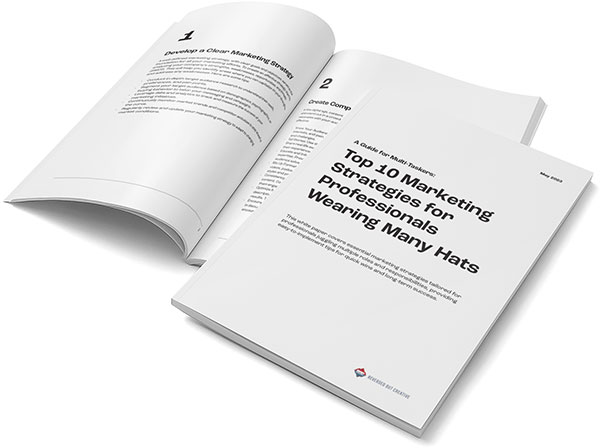
Your manufacturing company offers great products and solutions, but how do you get your clients to notice? The answer is an optimized SEO strategy. Search engine optimization helps people find what they’re looking for online by using search engines like Google or Bing. You can optimize your site to increase traffic and encourage potential clients to choose you over your competitors. Here are our top strategies that will help you stand out from the crowd:
Make a great About Us page
A good About Us page is all about the company, not the team. This page is important because it’s one of the first things potential customers will see when they land on your site, so you want to make sure it has everything they need to know quickly and clearly.
Make sure your About Us page includes a clear call-to-action (CTA) that encourages people to contact you or learn more, such as “Contact Us” or “Learn More.” The CTA should be easy for visitors to find and click on if they want more information from you. If there are multiple CTAs on your website, try testing different ones and seeing which performs best for generating new leads for salespeople in real life.
For example – if there are two links next door to each other with different messages above them like “Contact” and “Helpful Articles About Our Services,” see how many clicks each gets over time by checking its analytics; this data can help guide future decisions about what content should be front-and-center.
Make a strong home page
Make sure your home page is clear, easy to navigate, and contains a good mix of text, images, videos, infographics, social media, and other useful information for your audience.
Keeping your home page clear allows your audience to find what they are searching for easily and encourages them to stay on your website.
Include FAQs
Many manufacturing companies have trouble providing answers to common client questions. If you’re one of them, it may be time for a quick refresher on the best way to address this issue: with FAQs (frequently asked questions).
They are a great way for your website visitors and clients to get answers without having to contact you directly. This can save them time, money, and frustration if they don’t have access to an expert who’s familiar with all of your services.
You can also use the FAQ section on your website as an opportunity to advertise other products or services that are related but not necessarily advertised elsewhere on the site (e.g., “We offer X product/service; click here if interested in learning more.”)
Use simple internal links
Internal links can help visitors navigate your site, but they can also help search engines understand your site structure and hierarchy.
Use internal links to pages that are related to each other, but unconnected on the same level of content hierarchy as the linked page. For example, if you have a product page that talks about a certain manufacturing process, link it to another product page that also deals with manufacturing processes but is not directly related to the first one. This will help search engines see how all these different products fit together and give them an idea of how broad or specific each topic is.
Internal linking is especially important for websites without much content yet because it allows search engines to understand where everything fits into your site’s architecture even if there isn’t much information yet available.
Use semantic SEO keywords internally
Semantic SEO (search engine optimization) keywords are those that are related to the topic at hand but not necessarily related to the page on which they appear. These are important for users and search engines because they help convey what your site is about.
For example, if you’re selling boats, “canoes” could be considered a semantic keyword for your product pages and blog posts—not just because it’s relevant to boating equipment but also because it indicates that your site is an authority on personal watercraft. This will make it easier for potential customers to find you online – even if they aren’t searching specifically for canoes!
Semantic SEO strategies can help improve your business’ user experience and boost its visibility in search results. While traditional SEO focuses primarily on optimizing individual pages so they rank highly in Google searches, semantic SEO focuses on creating content that’s useful across multiple pages or categories of information (like “how-to guides.”)
Write long-form content
Long-form content is more authoritative and can be used to answer questions, which helps your site appear higher in search results. This leads to more clicks and pageviews. Additionally, social media users are more likely to share long-form content because they like being able to read an article in one sitting without having to click through multiple pages of an article or blog post. Longer articles also allow you more space to provide valuable information that your customers will find helpful and relevant.
Focus on your location
Use local directories and listings, including Yelp and Yellow Pages.
With the use of local keywords, you can optimize your chances of getting reviews from customers who live in the area (or at least not far away). You can even incentivize them to leave positive reviews by offering coupons or discounts if they leave reviews on sites like Yelp or Google Local (formerly known as Google Places.) The more engagement you have with potential customers online, the better off you’ll be when it comes time for them to decide whether or not to buy from your company.
Find popular topics in your industry
It’s important to keep up to date with what’s popular in your industry, especially if you’re trying to reach a wider audience. You can use Google Trends and Google Analytics to see what people are searching for, as well as social media and Google News to find out the latest trends.
Clients will find you if you have good SEO
Search engine optimization is the process of improving your site’s visibility in search engines’ results. It involves a series of best practices that improve your website’s performance in organic search results. The main goal of SEO is to help users find your site via their preferred search engine, whether that be Google, Bing, or Yahoo!
The benefits of good SEO include:
- Increased traffic and leads
- Improved rankings on search engines
- More backlinks
Conclusion
To grow your business, an SEO strategy is a must. You’re competing with thousands of other businesses for visibility and search engine placement, so you want to make sure your website is working for you by helping Google’s algorithms understand how relevant it is to users. The good news? We can help! If you want to optimize your SEO strategy, feel free to contact us at Reversed Out Creative.
Contact Us
At Reversed Out Creative, we understand the challenges and opportunities presented by AI disruption. Our team of experts specializes in web design, SEO, graphic design, and digital marketing services. Reach out to us through our contact form to learn more about navigating the evolving job market and embracing the potential of AI. Together, let’s shape a future that combines human ingenuity with the power of AI.
Next Article: How To Build A Successful Customer Loyalty Program For Your E-Commerce Business
©2024 Reversed Out LLC. All rights reserved. Privacy Policy.


